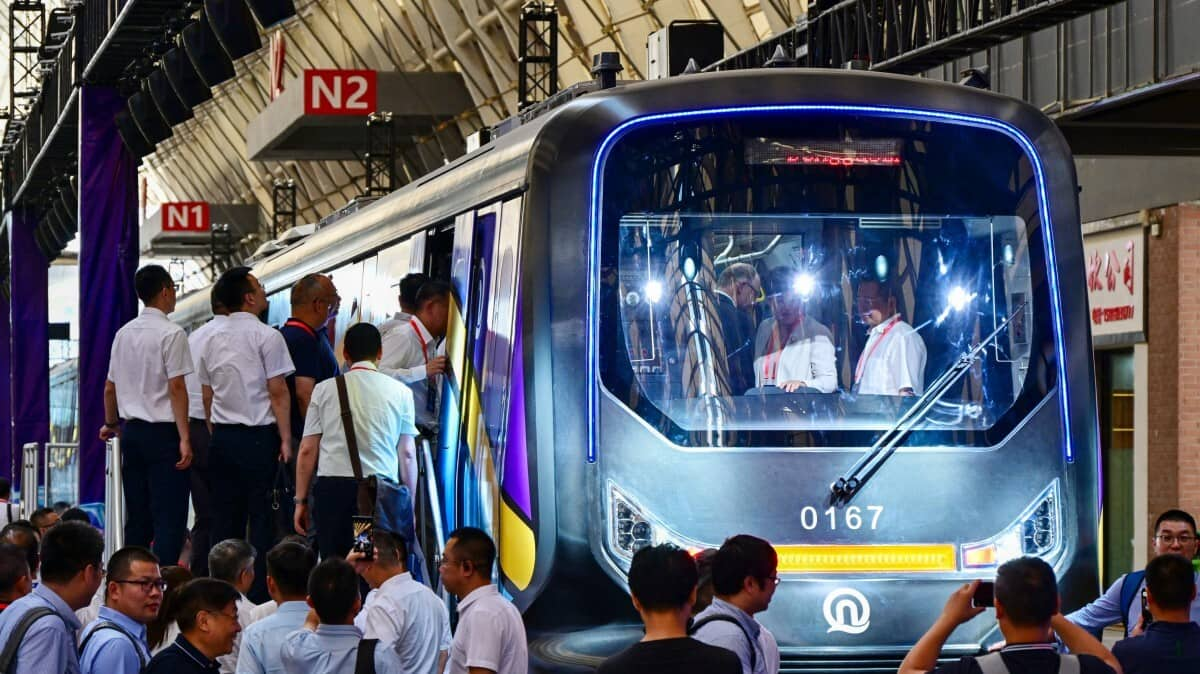
China unveils world's first carbon fiber passenger train
What's the story
China has introduced the world's first passenger train made from carbon fiber, a material known for its lightweight and energy-efficient properties. The metro train, dubbed Cetrovo 1.0 or the Carbon Star Rapid Transit, was unveiled in Qingdao, Shandong province on Wednesday. Developed by Qingdao Sifang Rolling Stock Company, a subsidiary of China Railway Construction Corporation, the train has completed in-factory testing and is set to begin operation later this year.
Efficiency boost
Carbon fiber construction enhances train's energy efficiency
According to reports, the primary load-bearing structures of the Cetrovo 1.0, including the car body and bogie frame, are constructed from carbon fiber composite materials. This makes the train's body and frame 25% and 50% lighter than a conventional train. As a result, the Cetrovo 1.0 is overall 11% lighter than traditional trains. According to Qingdao Sifang, this weight reduction will decrease energy consumption by 7% annually, equivalent to cutting about 130 tonnes of carbon dioxide emissions per year.
Green transit
Cetrovo 1.0 to reduce carbon dioxide emissions
"In the field of rail transit, a key technology is to reduce the vehicle's body weight and its energy consumption...while ensuring vehicle performance toward a greener, low-carbon future," stated Qingdao Sifang on WeChat. The Cetrovo trains are designed to reach top speeds of 140km/hour, significantly faster than the current average speed of 80km per hour. These fully automated and driverless trains can navigate curved or steep tracks and operate under harsh conditions such as high temperatures and altitudes, reports said.
Material innovation
Reduced weight to result in less wear on wheels, tracks
Traditional metro trains are typically made from steel or aluminum alloy, but carbon fiber offers a new solution. It is five times stronger than steel but weighs less than a quarter of it, making it ideal for various industries, including aviation, sports equipment, and now trains. Reports suggest that the reduced weight of the train will result in less wear on the wheels and tracks, leading to lower maintenance costs and a quieter journey for passengers.
Safety and cost
Advanced safety features
The Cetrovo 1.0 train features an intelligent anti-collision early warning system and an obstacle detection system that can reportedly automatically send alerts and bring the train to a stop in case of emergencies. Over the last few decades, the cost of carbon fiber has steadily decreased, and it has transitioned from a luxury material used mainly in aerospace to items such as cars and bicycles. Today, prices for industrial-grade carbon fiber range from US$7 to US$15 per pound.